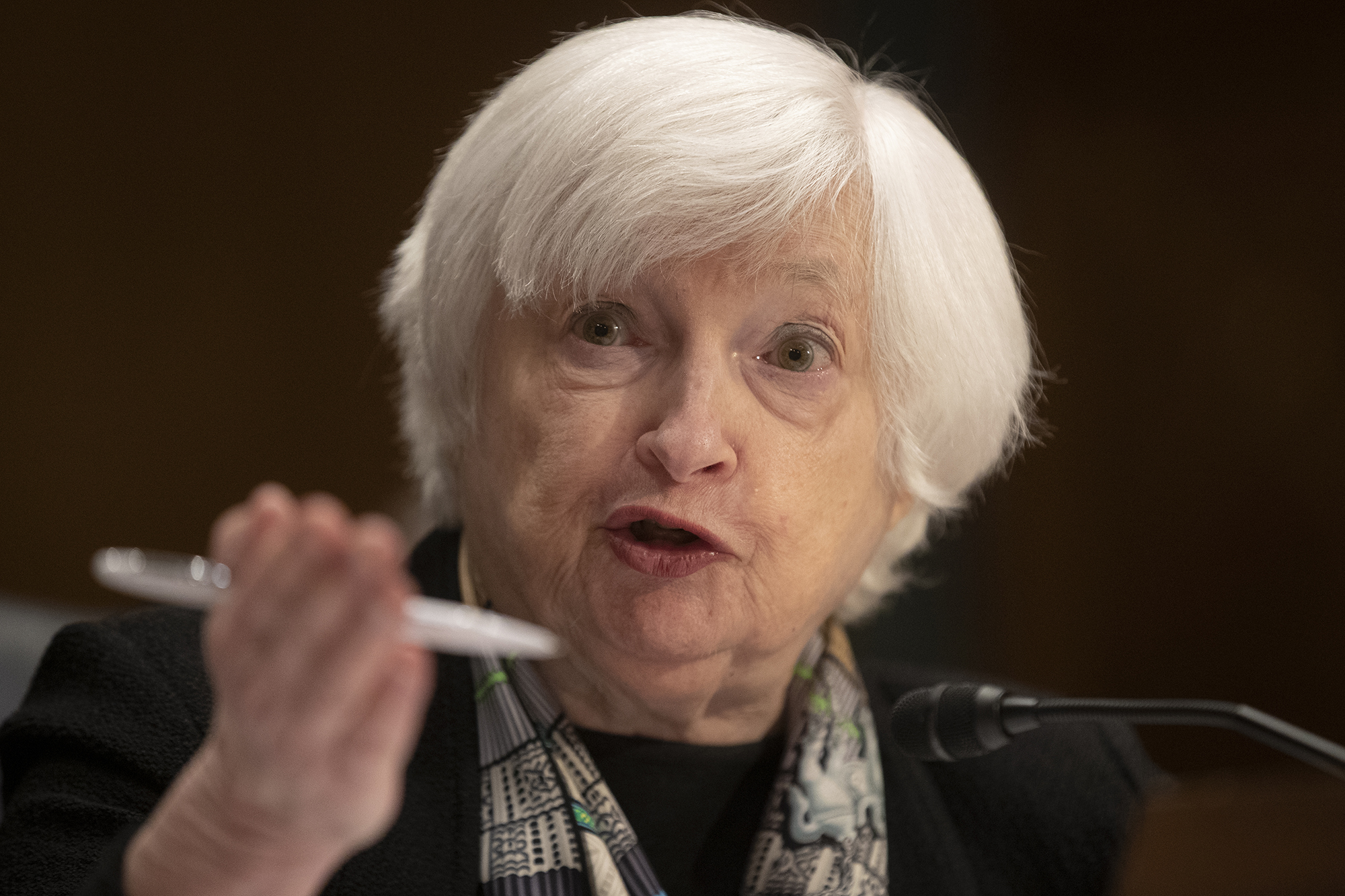BANKING CRISIS
Global central banks endorse Switzerland’s Credit Suisse-UBS deal

Central banks around the world lined up to hail Credit Suisse’s rescue, and emphasised the strength of the lenders under their remit.
US Treasury Secretary Janet Yellen and Federal Reserve Chair Jerome Powell said they welcomed the Credit Suisse deal announced on Sunday and stressed that the capital and liquidity of US banks are strong.
“We welcome the announcements by the Swiss authorities today to support financial stability,” the officials said in a joint statement. “The capital and liquidity positions of the US banking system are strong, and the US financial system is resilient. We have been in close contact with our international counterparts to support their implementation.”
UBS Group agreed to buy Credit Suisse Group in a government-brokered deal aimed at containing a crisis of confidence that threatened to spread across global financial markets.
While the news of UBS’s takeover brings some relief, there’s still considerable anxiety on Wall Street heading into this week. The turmoil at Credit Suisse and the collapse of three US regional lenders has fanned concern about the health of the banking industry and revived memories of the 2008 financial crisis.
ECB, BOE
The European Central Bank (ECB) welcomed the “swift action” taken by Swiss authorities. The decisions taken “are instrumental for restoring orderly market conditions and ensuring financial stability,” ECB President Christine Lagarde said in a statement.
“The euro area banking sector is resilient, with strong capital and liquidity positions,” she said, adding that the ECB’s policy toolkit “is fully equipped to provide liquidity support to the euro area financial system if needed and to preserve the smooth transmission of monetary policy”.
In the UK, the Bank of England (BOE) endorsed the “comprehensive set of actions set out by the Swiss authorities today in order to support financial stability”, and reiterated that the “UK banking system is well capitalised and funded”.
Meanwhile, UBS Group’s rushed deal to buy beleaguered rival Credit Suisse Group wasn’t the best solution, but was the most reasonable of the options available, says Mohamed El-Erian.
“Look, this was not the best solution, but it dominated the other two, which was either nationalization, or trying to wind down the bank,” the chief economic adviser at Allianz SE and a Bloomberg Opinion columnist told Bloomberg TV on Sunday. “It’s not clean, but of the available options, this was the best one that they could have had.”
El-Erian added that UBS’s takeover was a bailout. “Yeah, it was a bailout,” he said. “The phrase ‘bailout’ has become such an awful phrase that everybody is avoiding it. They’re going out of their way to say that it’s not a bailout, but then they can’t explain why money’s being put to work.”
UBS agreed to buy Credit Suisse in what has been a historic government-brokered deal as officials around the world race to contain a spreading banking crisis. The Swiss bank is paying 3 billion francs ($3.25-billion) for its rival in an all-share deal that includes extensive government guarantees and liquidity provisions.
The plan, negotiated over the weekend, looks to address client outflows and a massive rout in Credit Suisse’s stock and bonds over the past week following the collapse of a handful of US banks.
Read more: From Bear Stearns to Credit Suisse: Crises, Mergers and Bailouts
In the US, news continued to trickle in around First Republic Bank, which Bloomberg News reported will be downgraded again by S&P Global, days after the ratings firm cut the lender to “junk”. Last week, a group of bigger financial firms agreed to park a combined $30-billion in deposits with the bank.
El-Erian said that along with news around the UBS-Credit Suisse deal and how shareholders respond to it, he’ll also be watching First Republic at the start of the new week. Should the lender once again be downgraded by S&P, “that would not be good news — that would make First Republic’s life much harder. So, we have to keep an eye on First Republic, and then the spillovers from all those two.”
Asked if he was concerned about other institutions known to have issues, or if the worst might be in the past, El-Erian said: “I don’t know — because even banks that have no issues — they just happen to be in the wrong neighborhood — may suffer deposit withdrawals.
“I spent a lot of time this weekend talking to people who are asking me a simple question: ‘Are my deposits safe?’ And I say, ‘yes, they are safe,’” El-Erian said in Sunday’s interview. “And then they ask me the following question: ‘What do I lose if I move them to the largest banks? What do I lose?’ And it’s hard to argue that you’d lose something. So people are doing something that probably is not rational but totally understandable.”
UBS Group Chairman Colm Kelleher said he will manage down Credit Suisse Group AG’s investment bank, curtailing a source of losses in recent years in a move that potentially spells the end for plans to carve out parts of the unit under the CS First Boston brand.
“Let me be very specific on this: UBS intends to downsize Credit Suisse’s investment banking business and align it with our conservative risk culture,” Kelleher said Sunday at a press conference announcing the deal. “We will be de-risking a lot of the tricky businesses that we are inheriting.”
The takeover of Credit Suisse by UBS announced on Sunday creates significant overlaps in the new combined bank, not least the unit that suffered a multibillion-dollar hit from the blow-up of Archegos Capital Management in 2021. The combined investment banks of UBS and Credit Suisse won’t have more than 25% of the total entity’s risk-weighted assets over time, Kelleher said.
UBS is taking over a portfolio of “difficult-to-assess” illiquid assets, including long-dated derivatives as well as swaps, for which the bank negotiated a loss guarantee from the Swiss government. Given the fast nature of the deal, UBS was not able to do proper due diligence on the portfolio, though Kelleher said that there is no reason that Credit Suisse has not marked those correctly. The bank is expected to assume any first losses on winding down the portfolio of up to 5-billion Swiss francs ($5.4-billion), and government would backstop an additional 9-billion francs in potential losses.

Swiss Finance Minister Karin Keller-Sutter (centre); Axel Lehmann (far left), Chairman of Credit Suisse; Colm Kelleher (second from left), Chairman of UBS; Swiss Federal President Alain Berset (second from right); and Thomas J Jordan, Chairman Swiss National Bank; during a press conference in Bern, Switzerland, 19 March 2023. (Photo: EPA-EFE / Peter Klaunzer)
Klein Deal
A central plank of Credit Suisse’s now-defunct strategy turnaround unveiled in October was a spin-off of parts of the investment bank under the CS First Boston brand to be led by former dealmaker Michael Klein. The businesses housed in the unit became a sticking point in talks over the weekend to arrange the merger.
Read More: Credit Suisse’s First Boston Plan in Doubt Amid Crisis Talks
Kelleher emphasised that UBS has its own investment banking unit, though didn’t address the spin-off plans directly. Klein stands to miss out on a large payday, as he had stepped down from the supervisory board, and recently sold his boutique investment firm to the bank in a $210-million deal which had not yet been completed before the takeover.
UBS plans to continue with its own strategy of a smaller capital-lite investment bank and therefore be able to use the Credit Suisse investment bank to reinforce their global banking business while managing down the rest.
(Reporting by Viktoria Dendrinou, Craig Torres and Angela Cullen; With assistance from Christopher Condon and Tom Metcalf.)



















 Become an Insider
Become an Insider
Comments - Please login in order to comment.